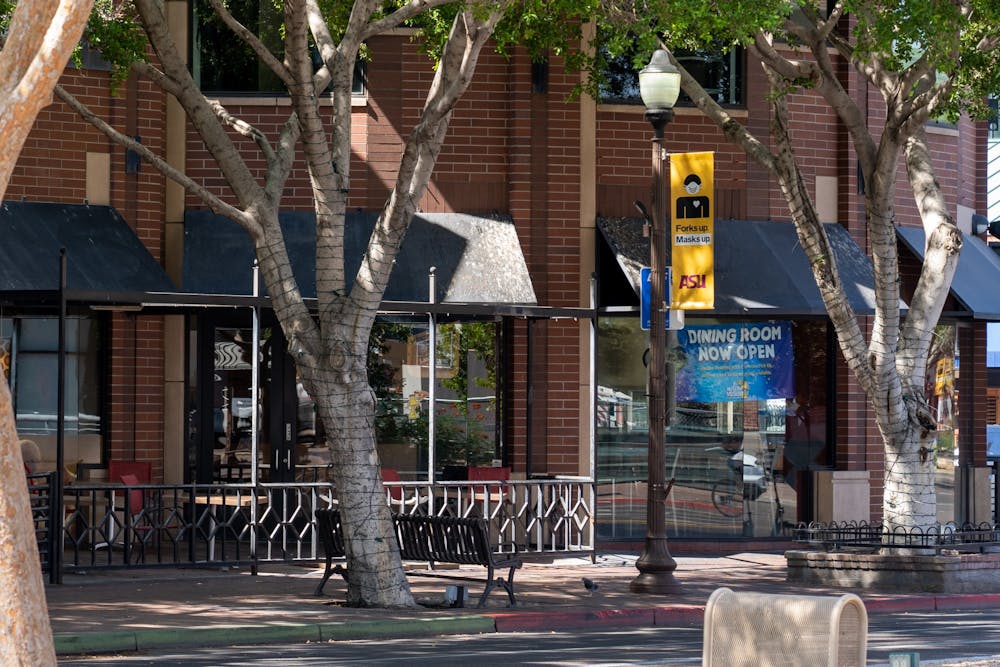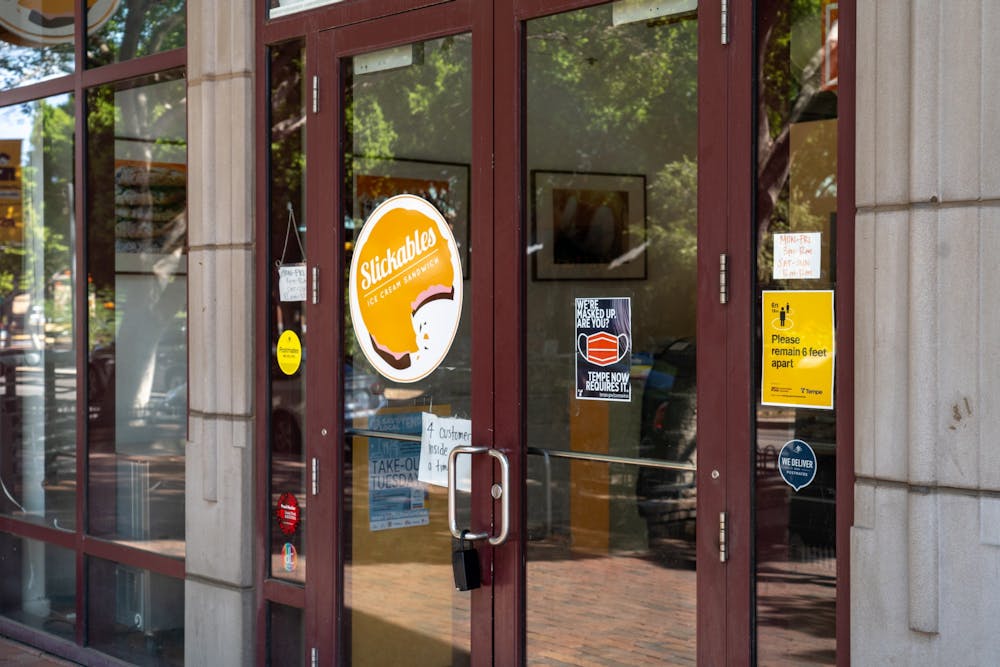Nine months ago, the City of Tempe and researchers from ASU worked together to monitor the city’s wastewater for opioids. Now, the focus has switched to monitor for COVID-19 with the city's Wastewater Dashboard, said Darrell Duty, assistant fire chief at Tempe Fire Medical Rescue.
When the pandemic struck, using the same techniques to monitor COVID-19 was “kind of a natural extension of that,” Duty said. The partnership to monitor the wastewater began over two years ago.
According to the Wastewater Dashboard, the team monitors the number of COVID-19 genes copies per liter; the more they measure, the greater the presence of the virus. City officials and the ASU researchers meet weekly to discuss data trends, Duty said.
“We get to understand and have an almost a real-time picture of what the presence of virus particles in our wastewater is,” Duty said. “Which is a good indicator for the amount of viral load that's in the community.”
That monitoring led to results: When the data for area six, a small section monitored that stretches through Apache Boulevard, began showing an increase in the presence of the coronavirus, the city was able to set up a free testing site to get residents tested in the area, Duty said.
Projects like this are just one way the City of Tempe and ASU have partnered together to share information and resources to limit the spread of COVID-19 among Tempe residents and students attending the University.
With ASU’s main and largest campus located within Tempe, the two entities have worked together for years, said Kris Baxter-Ging, a public information officer for the City of Tempe.
“We're all working on this together,” Baxter-Ging said. “But that relationship — the long-standing nature of this relationship — is so beneficial right now while we're working on one of the world's toughest problems.”
Tempe Mayor Corey Woods and ASU President Michael Crow, along with other City and University leaders, meet frequently to talk about how the two can work together in collaboration, Baxter-Ging said.
A University spokesperson added that ASU frequently meets with City of Phoenix leaders as well, given ASU’s Downtown and West campuses are located there.
In a meeting with The State Press on Sept. 23, Crow said working with local partners has led to a safer environment at the Tempe campus.
The mutual goal is simple: promote awareness and adherence to public health guidelines, encourage responsible behavior and “remind people that we are all in this together,” a University spokesperson said.
COVID-19 health protocols are not law, “so communications that remind and reinforce public health recommendations are very important,” the spokesperson said.
ASU has provided “Community of Care” signage to both the city and businesses within Tempe, the spokesperson said. The University spent $3,167.44 on the signage before the semester.
READ MORE: A financial breakdown of the millions ASU has spent addressing COVID-19
Using ASU’s signage, the City also created an outreach program before the semester that sent “thousands of packages of information, both physically and digitally to apartment complexes” that typically house ASU students, Baxter-Ging said.
If local businesses need support in reopening, training, or managing their company, the University is offering advising to partners, the spokesperson said.
“ASU recognizes that in order to fully promote a Live Well, Be Well community, we need the support of the entire Sun Devil community – and that includes cities, businesses and other organizations in our surrounding areas,” the spokesperson said in an email.
ASU’s Biodesign Institute has been at the heart of much of the collaboration, working with the City on both the wastewater program and providing residents free saliva-based COVID-19 testing. Individuals receive a tube and a straw, and then proceed to spit into it. Within 48 hours, the Biodesign lab can process the sample and provide results.
A partnership with the Arizona Department of Health Services secured $12.7 million in funding for ASU to launch testing sites throughout the state. Baxter-Ging said the partnership has benefitted Tempe, as well. The test is simple enough that Tempe Fire Medical Rescue staff could be trained to administer the tests, Duty said.
“ASU is an important part of our city,” Baxter-Ging said. “And frankly, our city is important to ASU.”
Reach the reporter at wmyskow@asu.edu and follow @wmyskow on Twitter.
Like The State Press on Facebook and follow @statepress on Twitter.

Wyatt Myskow is the project manager at The State Press, where he oversees enterprise stories for the publication. He also works at The Arizona Republic, where he covers the cities of Peoria and Surprise.





